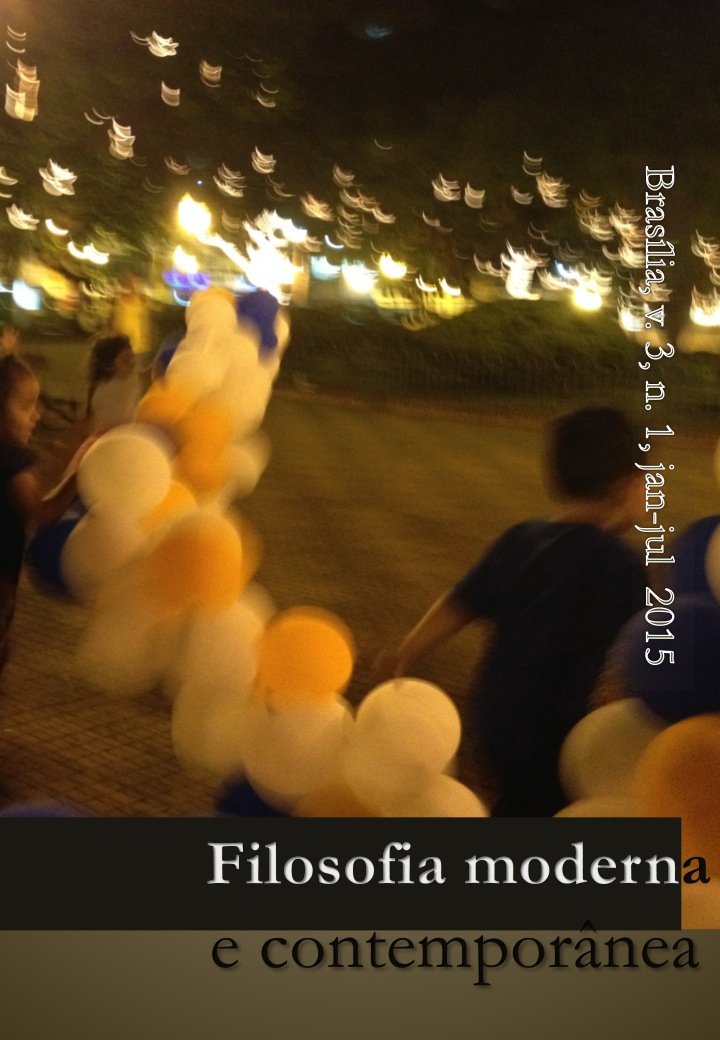The provenance of technicity in perspective of the tought of "Being-ashistory": an interpretation since Heidegger
DOI:
https://doi.org/10.26512/rfmc.v3i1.12499Keywords:
Technicity, Functionality, Truth, Being-as-history, HeideggerAbstract
This paper presents the proposal of thinking, with Heidegger, the historical origin of modern technique, from the historical-ontological think, i.e., the thought that meditates on the history of Being. In this effort, the meditation goes back to the Greek origins of this history, proposing to understand the essential meaning of téchne among the Greeks. Then exposes the intermediation exercised by the roman interpretation of the truth and of the Being as "actualitas". Next, this paper presents the transformation of the ontology of "actualitas" in the modern metaphysics of functionality, that effective the correspondence of subjectivity and objectivity. Finally, ask about the end of this metaphysic in the dominance of the current technique.
References
HEIDEGGER, M. Uma palavra de agradecimento. In: Revista de Cultura Vozes, Petrópolis-RJ, Volume LXXI, n. 4, p. 329-331, 1997.
________ (3ª ed.). Introdução à Metafísica. Rio de Janeiro: Tempo Brasileiro, 1987.
________ Überlieferte Sprache und technische Sprache. Attental: Erker, 1989.
_________: Sophistes - Gesammtausgabe Band 19. Frankfurt am Main: Vittorio Klostermann, 1992.
________ (2ª Ed.). Beiträge zur Philosophie (Vom Ereignis) - Gesammtausgabe Band 65. Frankfurt am Main: Vittorio Klostermann, 1994
_________ (6ª Ed.). Nietzsche - Ester Band. Stuttgart: Neske. 1998a.
_________ (6ª Ed.). Nietzsche - Zweiter Band. Stuttgart: Neske, 1998b.
______ Ensaios e Conferências. Petrópolis: Vozes, 2001
HEINZMANN, R. (1992). Philosophie des Mittelalters. Stuttgart: Kohlhammer.
LEÃO, E. C. Filosofia Grega. Teresópolis-RJ: Daimon, 2010.
LEÃO, E. C. Filosofia Contemporânea.Teresópolis-RJ: Daimon., 2013.
Downloads
Issue
Section
License
Copyright for articles published in this journal is retained by the authors, with first publication rights granted to the journal. By virtue of their appearance in this open access journal, articles are free to use, with proper attribution, in educational and other non-commercial settings.


